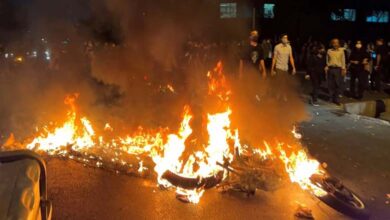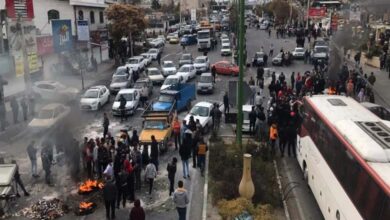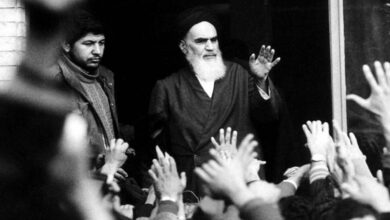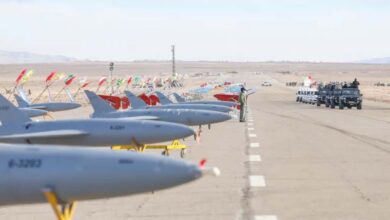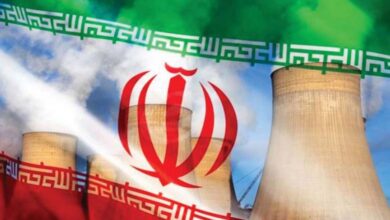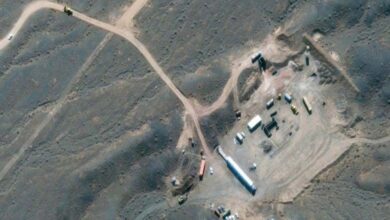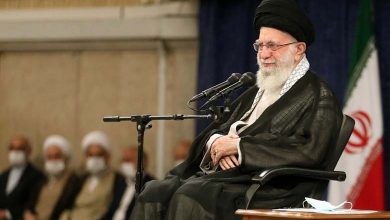Iran’s Nuclear Calculations Become More Dangerous After Escalation with Israel
US intelligence assessments are comfortable in concluding that Tehran is using its nuclear program to build its negotiating leverage, making this program a tool of Iranian diplomacy
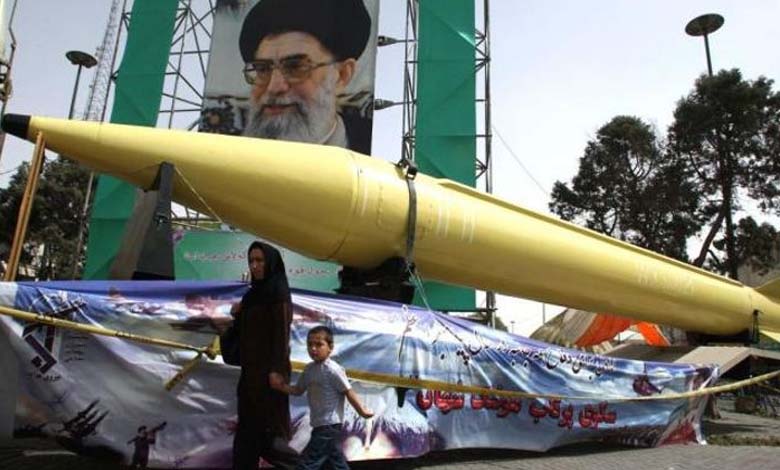
The escalating tensions between Iran and Israel have raised fears of their extension, with Tehran seeking revenge for its casualties by exploiting international concerns about the nuclear file, while Israel needs to restore its deterrence power severely damaged by a Hamas attack on October 7th.
When Tehran launched its ballistic missile program nearly four decades ago and its nuclear ambitions grew, the primary goal at the time was to confront Iraq, followed by positioning itself as a strong state against the United States, before turning into “hatred of Israel,” according to an analysis published by the Wall Street Journal.
Iran launched an attack on Israel in mid-April with hundreds of drones and missiles in retaliation for a strike that destroyed its consulate building in Damascus and killed seven members of the Revolutionary Guards, including two senior officers on April 1st. Tehran accused Israel of carrying out the strike.
Friday saw explosions heard in the Iranian city of Isfahan, described by sources as an Israeli attack, but Tehran downplayed the incident. As escalation between the historic enemies intensifies, the Biden administration is not alone in fearing a regional conflagration.
A commander of the Iranian Revolutionary Guards, Ahmad Haq Talib, suggested that Iran could reconsider its “nuclear doctrine.”
Tasnim quoted the head of the Organization for the Protection of Nuclear Facilities as saying that Israel’s threats against Iranian nuclear facilities could make it possible to “review our nuclear doctrine and policies and change our previous considerations.”
Facing Israeli threats of retaliation despite international calls for calm, Haq Talib insisted that the “nuclear centers of the Zionist enemy” were identified, affirming that “our hand is on the trigger to launch powerful missiles to eliminate specified targets” if Israel targeted Iranian facilities.
An analysis by the Wall Street Journal prepared by Royaume Marks Gersh and Ray Takieh, a former CIA official and a researcher at the Council on Foreign Relations, indicates that US intelligence assessments are comfortable with the conclusion that “Iran is using its nuclear program to build its negotiating leverage and respond to international pressure,” thus making this program a tool of Iranian diplomacy.
There are currently only nine countries in the world possessing nuclear weapons, namely Russia, the United States, France, China, the United Kingdom, India, Pakistan, North Korea.
Experts believe that Israel possesses nuclear weapons, although it has neither denied nor confirmed this. In contrast, Israel and Western countries accuse Iran of seeking to develop a nuclear weapon, which Tehran denies, always asserting the peaceful nature of its nuclear program.
Iran’s stockpile of enriched uranium stood at 5.5 tonnes in February, according to the latest quarterly report from the International Atomic Energy Agency, which inspects Iranian enrichment facilities.
Iran is now enriching uranium to a purity of 60%, and has enough enriched material at this level, if further enriched, to make “two nuclear weapons,” according to the theoretical definition of the International Atomic Energy Agency.
Regardless of Iran’s uranium enrichment program, there is a question of how long Iran will take to produce the remaining part of a nuclear bomb, and perhaps miniaturize it sufficiently to place it within a delivery system such as ballistic missiles if desired. This is difficult to estimate because it is not clear how much knowledge Iran possesses, according to Reuters.
US intelligence agencies and the International Atomic Energy Agency believe that Iran had a coordinated nuclear weapons program that it suspended in 2003. The Agency concluded in its 2015 report that Iran had worked on developing aspects of a nuclear weapons program and continued some work until late 2009.
Tehran denies having a nuclear weapons program, although Iranian Supreme Leader Ali Khamenei said that if Tehran wished, “world leaders could not stop us.”
Estimates of the time it would take Iran to acquire a nuclear weapon vary from a few months to about a year.
The analysis suggests that since October 7th, the United States and Israel have been shocked by “Hamas attacks, and direct Iranian attacks on Israel for the first time in 45 years of hostility between the two parties, and perhaps the next surprise will be an “unjustified earthquake in an Iranian desert.”
The West warns against underestimating Khamenei’s need to achieve a “glorious legacy,” which could lead him to seriously consider whether “testing the nuclear weapon is better or not?”
In March 2023, the then Chairman of the Joint Chiefs of Staff, General Mark Milley, testified before Congress that Iran obtaining a nuclear weapon would take several months, although he did not specify the basis for this assessment.


